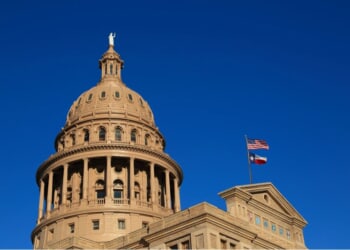This morning the media reports that 15 people – including, to much initial confusion, “a former police officer called Jeremy Hunt – who is not the former chancellor” – have been charged with gambling offences for allegedly placing inside bets on the timing of last year’s general election.
Poor Craig Williams has his face back in the newspapers. Other Conservatives charged include two parliamentary candidates, two senior party officers, and an MS (who, awkwardly, had only just been reselected for the upcoming Welsh election).
Labour, understandably keen for an excuse to shift the spotlight, has called for anyone convicted to be permanently banned from the Conservative Party. The Tories can scarcely complain, having done their bit to try and whip up a general moral panic about political betting when the story first broke (Labour did not hesitate to throw their own people under the bus).
There must now be some small risk that the Government actually seizes upon Mel Stride’s absurd suggestion that MPs should “quite possibly” be banned from betting on politics altogether, with Government and Opposition trapped in a mutually-reinforcing purity spiral which stops either stepping back and acknowledging how silly that is.
When the scandal first broke, we lamented the way that the Conservatives, in a bid to confuse the issue by throwing as much mud around as possible, were wilfully trying to conflate the specific allegations of insider betting against Williams et al with the broader question of betting on politics:
“The Conservatives naturally have every interest in playing it up for all its worth, trying to zoom the conversation out from the specifics into po-faced meditations about the political class in general. For this, they have a ready audience amongst the British public, which has seldom passed over an opportunity for a bit of knee-jerk puritanism, and the press, which has a bottomless appetite for demands that “Something must be done!” about whatever the scandal du jour happens to be.”
My complaint, however, ducked a deeper question – or rather, it did not occur to me. Should insider betting on politics actually be illegal?
This would be an easier case to make on this site if those charged were Labour politicians and staffers; it would then look fiercely open-minded rather than drearily partisan.
But one day after our editorial came out, Dan Davies published this excellent piece in the FT which makes a strong case that it ought not to be. For readers not inclined to read the entire thing (it isn’t paywalled), the basic case rests on three points, which I present in ascending order of persuasiveness.
First, whilst it seems very natural to us now, Davies notes that insider trading (in the proper sense, on the stock market) was not illegal in the UK until 1980, and in New Zealand until 2008. The United States banned insider trading first for instrumental reasons: “it wanted to develop a culture of mass participation in investment”, which required mitigating some of the structural advantages enjoyed by the big, central players over retail investors.
Where insider betting has been banned in sport, as in horseracing, it has been for the same reason. Betting is integral to the sport; if punters got the impression that trainers and jockies were regularly fixing races, the entire thing would collapse.
Does this logic apply to political betting? Is there any obvious utility in designing the law so as to encourage mass participation in it?
Second, in the stock market insider trading laws are designed to protect the little guy (retail investors) from getting ripped off by well-informed institutional insiders. This is because most stock trading is done between two parties – “for every winner, a loser”.
Gambling does not work that way. You do not buy stocks in your favourite horse from someone who doesn’t fancy its chances. Insider betting laws thus protect not the average punter, but the bookie – someone whose entire living is made by being better-informed than the overwhelming majority of their punters, who literally gets to price the bets (decide the odds) to tempt people into losing their money, can simply refuse your bet, and can even get bets voided.
This is probably why – and here is the final point – Parliament has never legislated to make insider betting illegal. Traditionally, Britain has applied the principle of caveat emptor very sternly in the case of gambling. The only crime in the original 1845 Gambling Act, retained in the 2005 one, is the nebulously defined “cheating”.
Perhaps you think beating a bookie using information the bookie doesn’t have should qualify as cheating. But it is has never been so determined, and is far less obviously so than e.g. fixing a race. The basis for the charges against Williams and co. is not statute or case law, but a 2018 position paper from the Gambling Commission.
It is by no means clear that this will hold up in court. Nor, more importantly, that it should. As Davies notes: “The Gambling Commission isn’t actually allowed to create criminal offences out of obscure policy papers”.
These prosecutions also create a very odd double-standard. Where betting is potentially a serious problem, and is thus policed by industry bodies (such as the British Horseracing Association), the Gambling Commission tends to work through them. It seems perverse if it ends up cracking down more heavily with criminal sanctions in edge cases.




![Jasmine Crockett Justifies Mass Illegal Immigration With Bizarre Argument [WATCH]](https://www.right2024.com/wp-content/uploads/2025/03/1742007023_Jasmine-Crockett-Justifies-Mass-Illegal-Immigration-With-Bizarre-Argument-WATCH-350x250.jpg)
![Red Sox Fan Makes the ‘Catch of the Day’ with Unconventional ‘Glove’ [WATCH]](https://www.right2024.com/wp-content/uploads/2025/04/Red-Sox-Fan-Makes-the-‘Catch-of-the-Day-with-350x250.jpg)

![NYC Tourist Helicopter Falls into Hudson River, Siemens Executive and Family Among Those Killed [WATCH]](https://www.right2024.com/wp-content/uploads/2025/04/NYC-Tourist-Helicopter-Falls-into-Hudson-River-Siemens-Executive-and-350x250.jpg)








